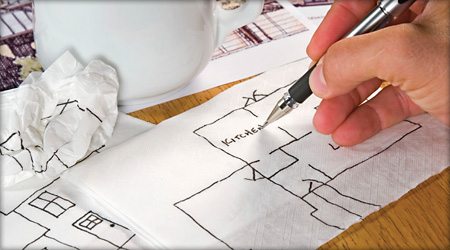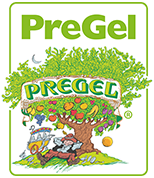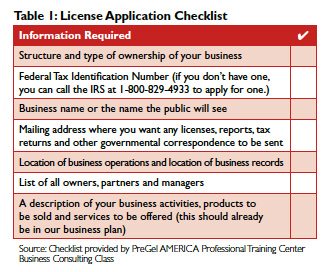
Part 4 – Setting Up Shop
A six-part series on the necessities of starting a business.
You’ve checked the first three components of starting a business off your list – a business plan, a location and product line development. Next in line are the items needed to set up shop. Setting up shop includes three major areas of focus: business licenses and permits, store design and equipment.
Business Licenses and Permits
Knowing your business model and having a location mean the next step is applying for the appropriate business licenses and permits to operate. The most important is applying for your general business license. (See Table 1: License Application Checklist, which outlines the information needed to apply.)
You may or may not require additional permits based on your location and business. These permits include a zoning permit for your property unless located in a pre-established shopping plaza; a sign permit for your store – cities and towns in some cases have very strict requirements; fire permits for the correct installation of alarms and sprinklers – note if you have an oven, there may be additional restrictions; and a building permit for construction, remodeling and renovation. To receive your Certificate of Occupancy, the building will need to be inspected after any additional construction has been done (electrical, plumbing, etc.). In some cases, the contractors and/or workers you hire are responsible for getting these permits so you don’t have to. Overall, talk with a local goverment official or visit your local governing body’s Web site as information should be available to businesses on what licenses and permits are required. In some cases, your realtor or landlord may have knowledge of these as well.
Store Design
For this particular article, store design does not refer to paint colors, images and general décor, but rather the actual placement of key elements for the functionality of your store. Determining the layout of your store can affect both licenses and permits, as well as the equipment and furnishings you purchase. Some cities and states regulate certain items such as restrooms, where plumbing, electronics and ovens can be located, and how many tables and chairs can be placed in your store. Here are some of the key questions to ask yourself with regard to store design1:
- What is your budget for build out, equipment and fixtures?
- What are the square footage, overall dimensions, and ceiling height of the space?
- What is the electrical voltage in the building and the total amperage on the electric panel?
- What are the dimensions of the existing restrooms? Are there any additional restroom requirements?
- What is the location of the main entrance door for your customers?
- How will you display the products and attract interest while maintaining customer flow throughout the store?
- Are there additional entrances or exits?
- Do you have any fire exit issues?
- Do you offer menu items that are prepared at your location?
- How much space is needed for the preparation of your products? Is a prep kitchen or lab needed?
- Will you offer dine-in seating?
- Where will supplies be stored? And how will they be received?
- Are there outlets, plumbing, etc., where you want to place equipment?
Answering these questions is very important to dictate the flow and design of your space. You’ve probably heard about the need to feng shui businesses. According to the American Feng Shui Institute, feng shui is “the study of how the environment affects those who dwell in it.” Feng shui can help you decide how to change your business or home into a center of power and can improve your health, your relationships and your prosperity.” Having a design layout that is productive and easy to maneuver, as well as legally copasetic, is very important.
Equipment
With your product line thought out, you’ve determined you will need items such as a display case, a batch freezer, refrigerator, pastry and confection oven, coffee machine, mixers, blenders and so forth, but how do you go about obtaining all of this? Our industry provides a plethora of companies that offer a variety of equipment, which can sometimes be overwhelming. After you’ve determined what you need based on your products, the next step is securing the most functional equipment.
As you review different vendors’ offerings, be sure to assess the equipment by following the guidelines at right.
- Understand the size of the equipment versus the volumes of product your shop will be producing
- Determine the size of the equipment in reference to the size of your store; ask yourself, “Will it fit?”
- Is the price of the equipment in line with your expected return on investment (ROI)?
- Assess the quality of the equipment
- Understand the level of service and technical support offered
- Ask for references – we live in a world of product and service reviews, so take advantage of getting more information from existing customers’ experiences
- Test it out – use the product samples from your product line development to let the machine do the work
- Understand the warranties – what happens if your machine breaks and will it drastically affect your business?
- Review the pros and cons of the different models
As for the location, equipment is one of the largest investments you will make and therefore should not be taken lightly. Even the small equipment purchases are important.
Setting up shop is one of the most tedious parts of starting a business. Failing to meet requirements for permits and licenses can severely affect your store’s grand opening; the wrong equipment can affect the product, presentation and selling of your products; and a dysfunctional store design can adversely affect the flow and prohibit customers from coming in. Plan carefully and follow the guidelines set forth to accomplish these tasks, and stay tuned for the final two steps which will allow you to see your dreams come to fruition.
Continue Reading Part 5 of “Turning your Passion into a Reality”
Reference:
Sohkn, Kal. (2009). Business Consulting: Step by Step to Open a Gelateria. Retrieved from Business Consulting Class Presentation, PreGel Professional Training Center.
Sources:
American Feng Shui Institute. (2009). What is Feng Shui? Retreived July 7, 2009 from amfengshui.com/olfaq/#1.
M.Casol (personal communication, July 9, 2009).


